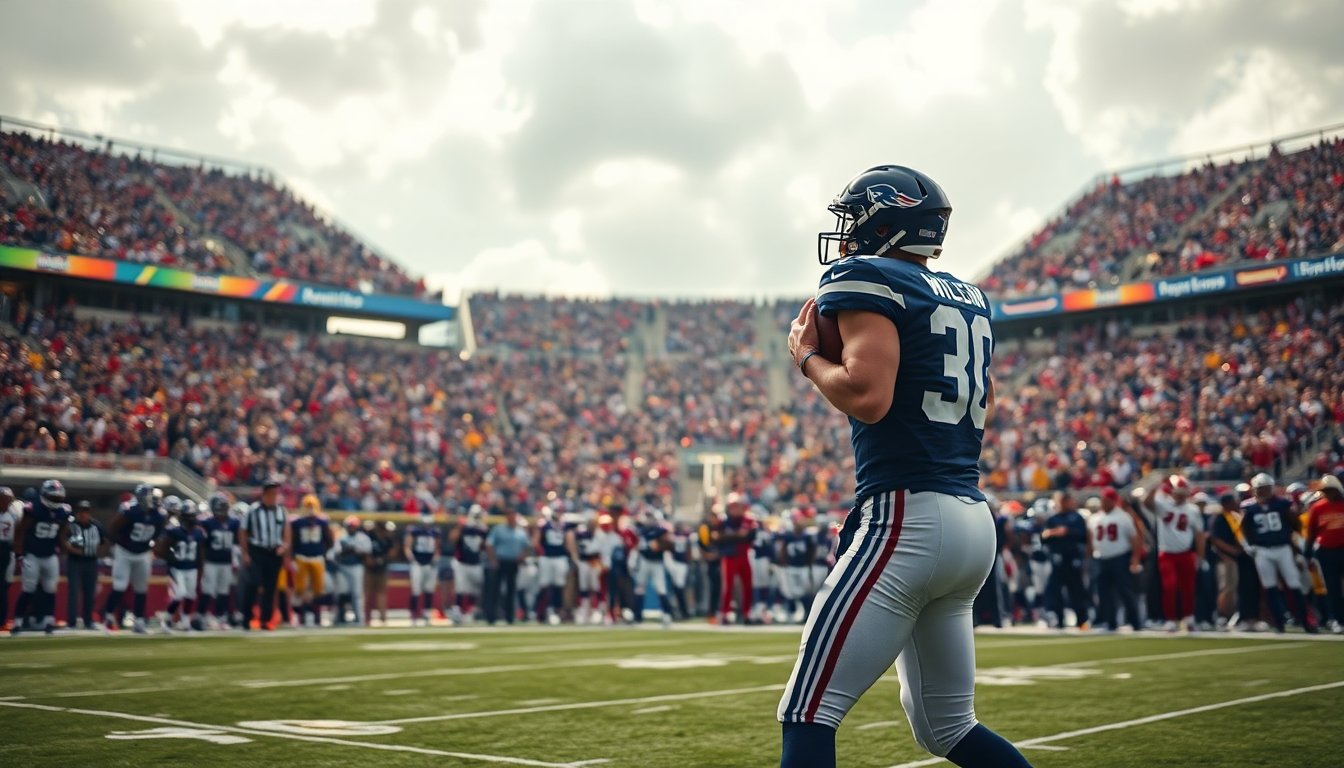Table of Contents
The Pressure of a Starting Quarterback
In the high-stakes world of professional football, few roles face as much scrutiny as that of a starting quarterback. This is particularly true for Russell Wilson, who has recently taken the helm for the New York Giants. Following a disappointing debut, where the team fell to the Washington Commanders with a score of 21-6, calls for a change in leadership have intensified. Wilson’s response to this mounting pressure reflects his mental fortitude and focus on what he can control amidst the surrounding noise.
The Challenge of Expectations
Known for his resilience and leadership, Wilson faced public criticism after completing just 17 of 37 passes for 168 yards, failing to secure a touchdown. This performance not only placed him under scrutiny but also ignited conversations among fans and analysts about the potential for rookie Jaxson Dart to take over. Wilson’s two-word message on social media—“Mentally Tough”—served as a statement of his intent to remain focused and composed.
After the game, Wilson addressed the media, emphasizing the need to concentrate on execution rather than external pressures. He acknowledged the team’s struggles, particularly in the red zone, identifying it as a critical factor in their defeat. This self-awareness showcases his understanding of the game and his commitment to improving in future matchups.
Support from Coaching Staff
Despite the clamor for a quarterback change, Giants coach Brian Daboll publicly endorsed Wilson as the starting quarterback for the upcoming game against the Dallas Cowboys. Daboll’s confidence in Wilson, stating that the loss was a collective team issue rather than one solely attributed to the quarterback, underscores the importance of a supportive environment in professional sports. The coach’s remarks highlight the need for a clear head when making decisions about player positions, emphasizing the significance of evaluating performance comprehensively.
As the Giants prepare for their next challenge, the dynamics within the team will be crucial. Wilson’s experience and leadership qualities will be tested as he aims to rally his teammates and improve overall performance. The role of a quarterback extends beyond individual statistics; it encompasses the ability to inspire confidence and drive the team toward success.
The Road Ahead
Looking forward, Wilson will need to leverage his extensive experience to navigate the pressures of the NFL effectively. With Dart waiting in the wings and having shown promise during the preseason, the competition could serve as a catalyst for Wilson to elevate his game. Dart’s performance, which included three touchdowns and zero interceptions in three preseason outings, has certainly raised expectations among fans and analysts alike.
Wilson’s ability to adapt and respond to challenges will be pivotal as the Giants approach critical matchups against formidable opponents like the Cowboys and the Kansas City Chiefs. The mental aspect of the game cannot be underestimated, and Wilson’s focus on emotional fitness will play a significant role in determining his success moving forward.
Ultimately, the path to redemption in the NFL is fraught with challenges, but it also presents opportunities for growth and development. As Wilson continues to navigate this transition with the Giants, his experience in overcoming adversity will be invaluable in shaping the team’s trajectory this season.


